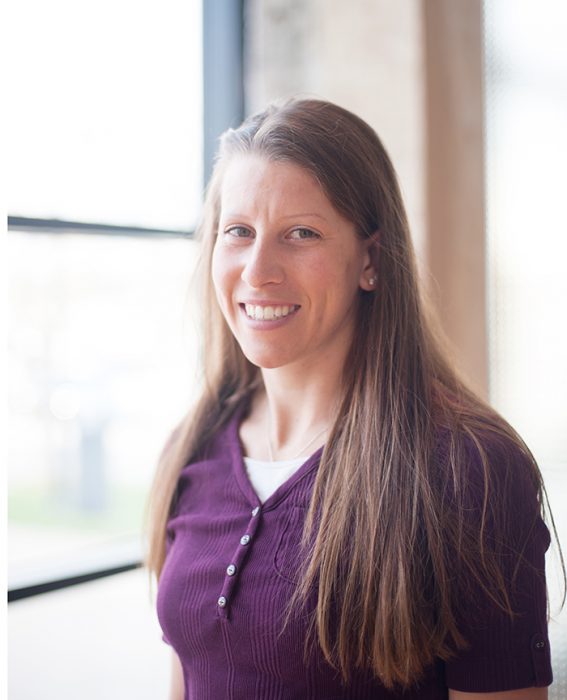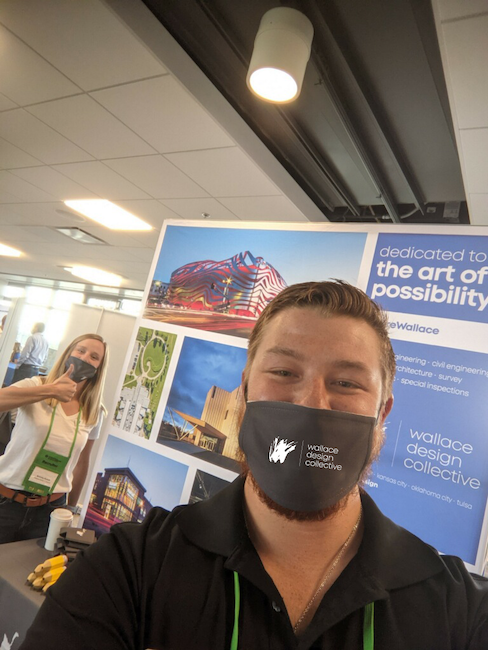College career fair season is in full swing! Does the thought of suiting up and heading to campus to introduce yourself to recruiters in hopes of landing an engineering internship or full time job at your dream company make your palms sweat?
As a student, figuring out how to approach companies at a career fair and make a positive impression can certainly be stressful.
This week, we sat down with Morgan Lewandowski, Wallace Design Collective’s Talent Acquisition Specialist, and asked her to share some insider insights. When it comes to career fairs, resumes, and interviews, what do recruiters want to see from engineering students seeking internships or full time positions?
Here's what she had to say about some common questions engineering students are asking as they prepare for their career fairs:
Just how important is GPA?
According to Lewandowski, due to most students’ limited work histories, GPA will likely be a starting point for most recruiters.
“Since you’re a student and you don’t have a ton of experience that we can pull from…[GPA] kind of reflects on your work ethic - how well you’re able to absorb information and then apply it, and how dedicated you are to turning in quality work.”
Still, she acknowledges there are valid reasons a student might struggle with grades. Whether it’s working full time to pay for school or being a parent, don’t be afraid to tell recruiters what’s going on in your life that might represent a different type of ‘hard work’ mindset.
“That’s a good conversation starter, to say ‘Look, I overcame this, and here I am, and that’s the kind of dedication I’m willing to put in if I work with you guys.’”
But if your GPA isn’t the greatest, is it best just not to list it?
“When it comes to resumes and not having GPA listed, you’re not fooling anybody. Whether or not you have it on there, if people are interested, they’ll ask.”
What kind of extracurricular activities do recruiters look for?
Lewandowski likes seeing extracurriculars related to engineering, such as ASCE, Engineers Without Borders, or design teams like Concrete Canoe.
“Those things are good because it shows you have a passion for engineering. You want to spend extra time learning it and being with like minded people and discussing these things.”
But mostly, she just wants to know the students she interviews have a passion for something - anything! She loves seeing student athletes and band members as well as church volunteers, gamers, and artists.
“Of course it’s great if [an extracurricular activity] reflects your major, but just being passionate about something and showing you’re willing to take the time to invest in something is good.”
Do I have to have previous work experience to get an internship or full-time position?
“I know, that’s the catch 22, right?” says Lewandowski with a laugh. “You need an internship, but sometimes to get an internship, it looks good if you’ve had an internship.”
Lewandowski says the importance of previous internships depends where you are in school and whether you’re looking for an internship or a full time position. When it comes to internships, Wallace typically starts recruiting students in their junior year to ensure they have completed some engineering-specific coursework and will be able to handle certain engineering tasks.
So, if you’re a junior who hasn’t completed an internship yet, that’s to be expected. If you’re a senior looking for your first internship, it might be something a company asks you about. But if you’re graduating and looking for your first full time job but have never had an internship? That might raise a red flag.
Even if companies don't typically hire interns before their junior year, start looking for internships and expressing interest a soon as possible.
“Internships look great, it shows that you went out and you spent what could have been your free time learning more about engineering and working and being in a real life environment.”
What are some tips for speaking with recruiters at career fairs or interviews?
“I think that being able to communicate is the number one thing that we’re looking for,” notes Lewandowski. “I know that career fairs and interviews are awkward and stressful, but be as comfortable as you can. Be comfortable talking about yourself.”
Lewandowski recommends having an “elevator pitch” ready - who you are, where you’re from, what you like to do, and what your goals are. Know your strengths, but also be willing to share your weaknesses. Likely, the interviewer isn’t scrutinizing your answer as much as how you communicate it.
Additionally, be prepared to share where you want to be in 3-5 years and some career milestones you hope to achieve. Also, have some questions ready for your interviewer. The interview process works both ways - the job needs to be a good fit for both you and the company. An honest, back-and-forth discussion is key.
“At the end of the day, that’s the best thing you can do, just try and relax a little bit and have a conversation.”
What are some tips for communicating with companies throughout the post-career fair and interview process?
“Definitely be responsive,” advises Lewandowski. ”If you send me an email and I respond to you that same day, it doesn’t look great if you then take three days to respond to me.”
Be on the lookout for companies trying to contact you, but also don’t be afraid to reach out on your own. Career fair season can be a hectic time for recruiters, so following up after a career fair with a quick email and a digital copy of your resume is a good idea. If you don’t hear back, Lewandowski says you shouldn’t be afraid to be persistent; reach out once a week.
Also, Lewandowski notes that it’s courteous to communicate timelines of other offers you may have received. Keeping companies in the loop not only gives you the best chance of the most offers and information, it also makes companies feel that you care about them.
Any final advice?
According to Lewandowski, the best way to make a bad impression is to have a resume filled with spelling errors and typos.
"Have someone look at [your resume] and proofread it. Be proud of your resume and what you’ve accomplished and be comfortable putting it out there."
There you have it! Polish up that resume and go tackle your career fair and interviews with confidence. We at Wallace Design Collective wish you the best in your job quest!
Want to know what you can expect from an civil engineering, structural engineering, or landscape architecture internship at Wallace Design Collective? Check out what our 2021 summer interns had to say about their experiences here.



There are no comments.